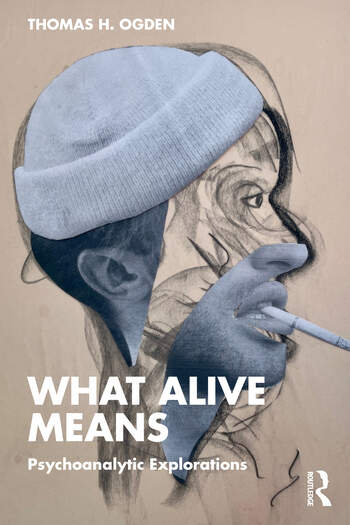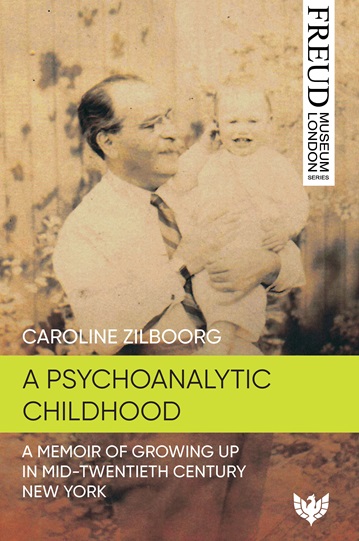On Sublimation: A Path to the Destiny of Desire, Theory, and Treatment
Part of Controversies in Psychoanalysis series - more in this series

Book Details
- Publisher : Routledge
- Published : April 2014
- Cover : Paperback
- Pages : 172
- Category :
Psychoanalysis - Catalogue No : 34225
- ISBN 13 : 9781782200284
- ISBN 10 : 1782200282
Also by Rossella Valdre
The Death Drive: A Contemporary Introduction
Price £19.99
Psychoanalytic Perspectives on Women and Power in...
Price £36.99
There are currently no reviews
Be the first to review
This book explores and revisits the concept of sublimation, in its various aspects and implications that it has in theory and clinical psychoanalysis, and also in its broader socio-cultural aspects. The basic assumption that aroused the author's interest in the topic is a certain surprise in observing how sublimation in psychoanalysis is in general spoken about less in contemporary discourse: so is it an outdated concept, an endangered species? Does it belong to the archaeology of psychotherapy? Or, on the contrary, is it so much a part of analytical practice and so well established and implicit in theory that it is not necessary to discuss it any more? It is the prevailing opinion of the author that sublimation is nowadays expressed differently and has undergone a sort of anthropological mutation, as has happened to several Freudian concepts with the changing historical and cultural contexts.
The present book looks at sublimation from various angles: it takes you through the history of the concept, its birth with Freud and post-Freudian development; its implications and controversies in psychoanalytic theory and in the idea itself of psychoanalytic treatment; and its central role in creativity and art, exploring for example the “great” successful sublimations of Leonardo da Vinci and Emily Dickinson.
At the heart of the book is contemporaneity and its contradictions: what is the place of sublimation in today's so-called 'postmodern' or hypermodern culture? The question, according to the author, is neither an idle one nor mere speculation: the existence of sublimation does not just coincide with the same psychoanalytic theory as Freud thought but also involves the destiny itself of contemporary man, his chances of survival and of living psychically, not squashed into consumerism, in the immediate satisfaction of his needs, or staying with the reassurance of gregariousness and the masses. The central thesis of this book is that sublimation and creativity, even in the most personal and minimal of forms, are essential to psychic life and to subjectivity. Despite this, as the book suggests in its conclusion, Freud himself thought that sublimation was never, due to its nature, complete: there will always be a 'scrap', a gap, something which is missing, as the human subject is pushed, throughout life, to the satisfaction of the drive.
So today the contemporary cultural climate helps impoverish our capacity for sublimation because of the changed cultural scene, compared to the early 1900s, whilst the Freudian concept of sublimation is more than ever current and necessary. In the author's opinion, in both psychoanalytical theory and practice, this subject must be recaptured and reenergized, as a completely modern concept as well as being crucial to the very survival of psychoanalysis.
Reviews and Endorsements
‘Does the human race “sublimate less”? Or does psychoanalysis today use the concept of sublimation in theory, clinical practice, and technique with less interest? In this extraordinary work, one of the most perceptive and stimulating that I have read in recent years, a dedicated psychoanalyst explores the evolution of a concept that reveals an implicit and powerful connection with contemporary ways of being. Culture, lifestyles, personality traits, educational models, therapeutic paths, the aesthetic dimension, and social contracts are all looked at in the light of the vicissitudes of sublimation: proof yet again that the psychoanalytical perspective, if it is rigorous and in-depth, is able to contribute to the interpretation of a more complex reality, as well as to the continuing development of its own theoretical and clinical cornerstones.’
— Stefano Bolognini, President of the International Psychoanalytical Association
‘Freud had planned in 1915 to write an essay on sublimation in his Papers on Metapsychology. This shows how, for Freud, sublimation was a fundamental concept of metapsychology. In this book, Rossella Valdrè encourages us to once again pick up the various threads of sublimation, according it the same essential value. Valdrè examines the vicissitudes of the concept, marked from the beginning by periods of alternate championing and fading from sight, and she offers us a fascinating study on the theories that may today seal the fate of sublimation.’
— Evelyne Sechaud, former President of the French Psychoanalytic Association and of the European Psychoanalytical Federation
About the Author(s)
Rossella Valdrè is a psychiatrist and psychoanalyst and a member of the SPI (Società Psicoanalitica Italiana) and the IPA (International Psychoanalytical Association). A graduate of the University of Genoa, she trained in Genoa and then in Milan. After her early years in institutional work, in recent years she has concentrated on her private psychoanalytical practice whilst she is also a supervisor in institutional environments and a court-appointed expert for the Juvenile Courts. For some years now she has been teaching psychoanalytic theory at the Faculty of Psychology of Genoa University. Her interest in cinema and psychoanalysis has led to the publication of film reviews (www.spiweb.it) and the presentation of films in different psychoanalytic centres. She is author of the book La lingua sognata della realtà. Cinema e psicoanalisi nell’esplorazione della contemporaneità (The dream language of reality: Cinema and psychoanalysis in the exploration of contemporaneity, published by Antigone, 2013). In addition to cinema, her fields of interest include the extension of psychoanalysis into the world of culture, art, literature and society, always connecting and interpreting in the light of psychoanalytic theory, with particular attention to Freudian metapsychology. Author of work and reviews in the Rivista di Psicoanalisi, film essays in the International Journal and book reviews in the Revue Francaise de Psychanalyse, she lives and works in Genoa.
Customer Reviews
Our customers have not yet reviewed this title. Be the first add your own review for this title.
You may also like
The Psychoanalyst, the Theatre of Dreams and the Clinic of Enactment
Roosevelt Cassorla
Price £34.99
A Psychoanalytic Childhood: A Memoir of Growing up in Mid-Twentieth-Century New...
Caroline Zilboorg
Price £22.49
save £2.50










